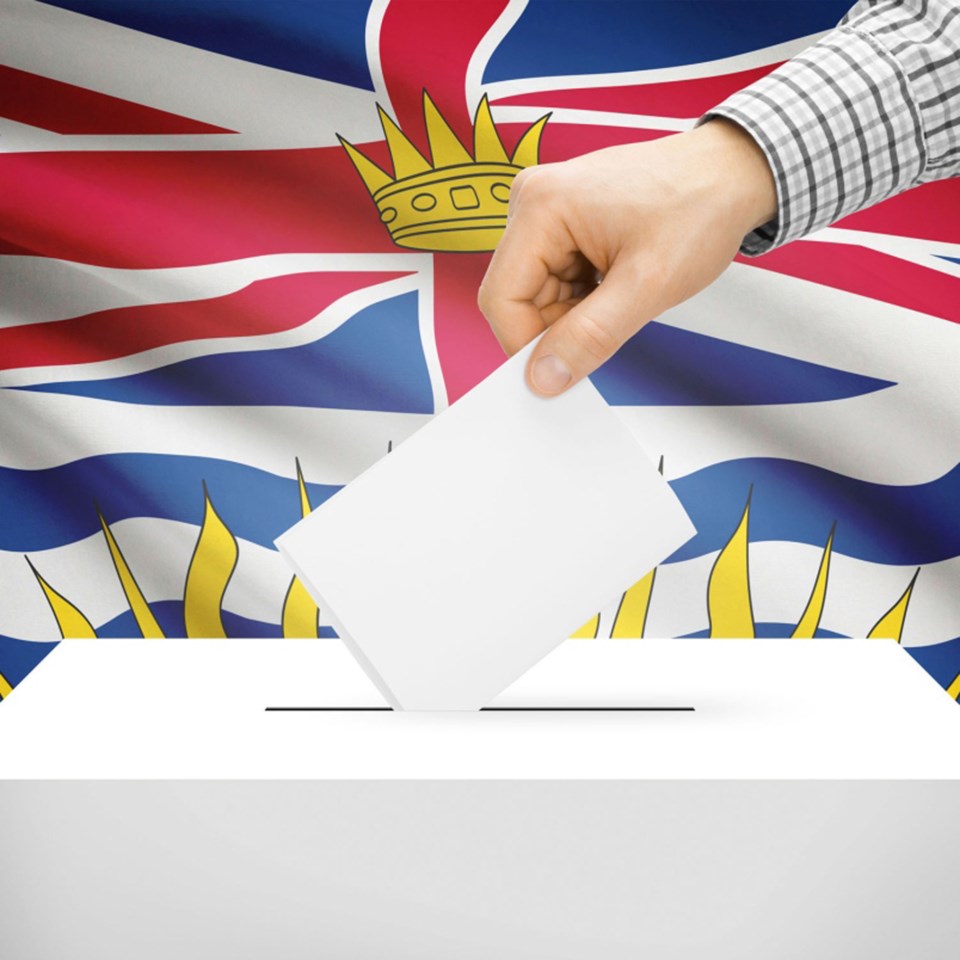If less than a quarter of the population support the idea of moving to a proportional representation model for electing the provincial legislature, does that strengthen democracy or weaken it?
That’s not a rhetorical question. Rather, there is a very real chance of precisely this kind of scenario happening because of the NDP government’s convoluted referendum process for electoral reform.
As of this column’s writing, less than four per cent of the ballots for the referendum had been returned to Elections B.C. That number will increase of course over the next couple of weeks, but there is every reason to think the final response turnout will be less than 50 per cent, and not more.
Various polls show the two options – the current first past the post system versus a move to a PR model – are in a dead heat in public opinion (with “don’t know” apparently getting a similar share).
If that is the case (and again, no reason to think that will change tremendously as the Nov. 30 deadline for voting nears), then the answers to the pivotal first question on the ballot (do you want to stick with the status quo or make a switch) will split fairly evenly.
For argument’s sake, let’s say the PR side wins with a 55 per cent to 45 per cent and the turnout rate is 40 per cent. That would mean less than 25 per cent of the population would change the voting system, which is at the heart of our democracy.
That number will be lowered even further when we move to the second question, which asks which of three PR models do people like the most. Again, assuming a close near-three way split on that question, this could result in less than 10 per cent of the electorate choosing the specific voting method.
If this kind of scenario does indeed unfold (and again, I think there is every reason to think there is a good chance of it happening), I fail to see how this strengthens democratic values and instills fairness in our electoral system.
It is not enough to say that you get what you get with a low voter turnout. The bar should have been set much, much higher for changing something so critical as the voting system (a higher threshold than the 50 per cent + one that the NDP has set for starters).
A better approach would have been to create another “citizen’s assembly” (as the B.C. Liberals did before during another referendum) to construct a single question on whether to stay with FPTP or make the switch to a specific PR system (be it STV or MMP or whatever).
The assembly would have been able to supply details such as ridings, maps and a much, much clearer picture of exactly what the new system would look like and operate in action.
Instead, many of those details will be worked out by a legislative committee dominated by the two parties wanting a shift to PR (no matter how few people may actually end up being in favor of it) or by a commission.
This lack of details is the single biggest complaint I hear from folks. Moreover, it is exactly the issue that B.C. Liberal leader Andrew Wilkinson zeroed in on repeatedly during his televised debate with Premier John Horgan last week.
While Horgan came off as more pleasant and personable than his opponent did, Wilkinson likely sowed plenty of seeds of doubt among many when it came to the lack of fairness in the referendum process.
The NDP government, for some unfathomable reason, chose a muddled approach that was criticized at its inception and now may be careening to a disaster of illegitimacy.
There are good arguments out there for sticking with the status quo, or for switching to PR. Both sides have merit and both have disadvantages.
The sanctimony from the PR side and the exaggeration from the No side is troubling, but a reasoned debate can be had, if enough facts are known.
However, a lack of specific information may end up suppressing the vote and if that happens, our democratic system will be weakened, not enhanced.
Keith Baldrey is chief political correspondent for Global BC.



